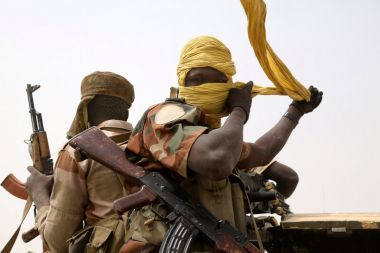Chad declares state of emergency amid wave of Boko Haram attacks and suicide bombings

The Government of Chad has declared a state of emergency after at least six people were killed in recent attacks and suicide bombings committed by the Nigerian home-grown Islamic extremist Boko Haram.
The announcement on Monday came as two female suicide bombers reportedly attacked a mosque in northern Cameroon, killing three people, a day after a similar assault killed a still undetermined number of people in Chad.
Suicide bomb attacks by the terror group have been increasing in frequency in the region since June when dozens of people were killed in the capital N'Djamena. Women and girls were also being kidnapped and forced to become suicide bombers, according to Christian News.
Communications Minister Hassan Sylla Bakari said the state of emergency would give authorities new powers to restrict the movement of people and vehicles, and to search and monitor residents in the area, Reuters reported.
The country has not been under emergency since 2008 when there were attempts by Chadian rebels to overthrow President Idriss Deby, the report added.
What is taking place in Chad is part of an ongoing regional offensive aimed at curbing terrorism in the area. Since the start of the year, the Chadian army has been on the forefront of a regional military operation against Boko Haram, whose attacks have spread from northeast Nigeria—its traditional stronghold—to the neighbouring countries of Chad, Niger and Cameroon.
The Islamic State (ISIS) affiliated group has been hit hard by the offensive and lost territory, but has launched a wave of bombings in response, said Reuters.
Meanwhile, a Nigeria-led task force consisting of 8,700 troops from Nigeria, Niger, Chad, Cameroon and Benin is expected to take over in the ongoing regional fight against the extremist group.
In October, Niger also declared a state of emergency following repeated attacks blamed on the terror group in the region of Diffa, according to a report by Aljazeera.
"The Nigerian government has declared that the terrorists were surrendering but the group has refuted the claims in an audio message. The voice identified in the broadcast is thought to belong to Boko Haram leader, Abubakas Shekau, who was rumoured to have been replaced due to his repeated absence from the group's videos,'' it said.
Boko Haram is believed to be hiding out in the Nigeria's Sambisa forest and the lake's many islands. It is being held responsible for 17, 000 deaths and for making 2.5 million people homeless in its six-year campaign of violence as it seeks to establish a caliphate in the region.











